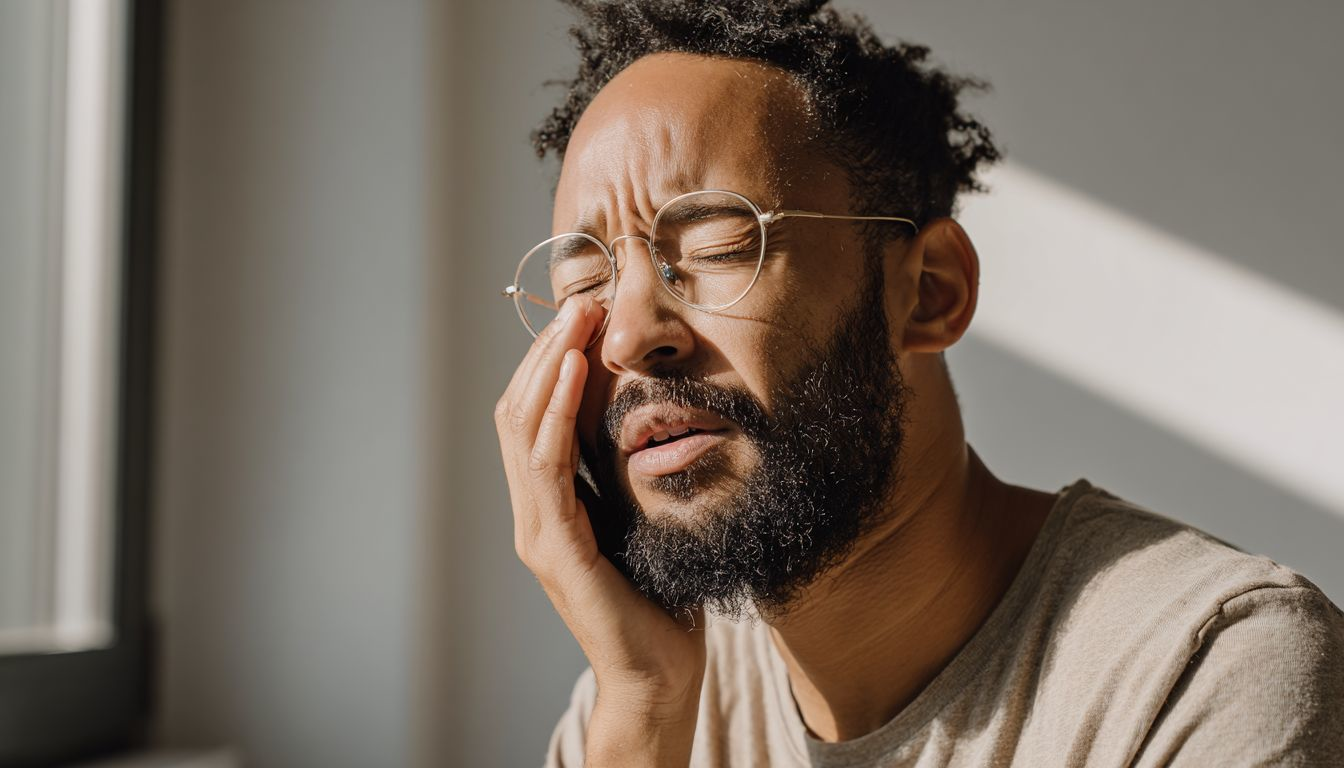Have you ever noticed how the end of daylight saving time can feel like a slow-motion train wreck? Just when you think an extra hour of sleep will be your saving grace, the darkness creeps in and suddenly you’re grappling with a case of the winter blues. For many, this shift brings on Seasonal Affective Disorder, leaving us yearning for sunshine while trudging through our daily routines.
🧠 What This Reveals About You in 4 Points:
- Change is Hard: You might think an extra hour of sleep is a win, but daylight saving time can mess with your groove. Your body’s internal clock gets thrown off, leaving you feeling groggy and out of sorts. It’s a reminder that even small changes can feel like big challenges. ⏰
- Light Matters: Ever notice how your mood dips as the days get shorter? That’s not just in your head! Lack of sunlight can trigger those pesky winter blues or even full-blown Seasonal Affective Disorder. Your brain literally craves sunshine, and without it, things can get pretty gloomy. ☁️
- Self-Care is Key: It’s tempting to think just getting more sleep will fix everything, but it’s about more than that! Think cozy movie nights and warm drinks. Prioritize activities that make you happy—they’re essential for your mental health during these dark times. ☕️✨
- You’re Not Alone: Feeling overwhelmed? Join the club! Sharing your experience with friends or family can lighten the load. Plan get-togethers over hot cocoa—talking it out makes the transition feel a little less daunting and reminds us we’re all in this together. 🤗
Why Daylight Saving Time Hits Harder Than You Think
So, here we are again—falling back as daylight saving time ends. Those of us who’ve lived through a few of these seasonal shifts know it always feels like a punch to the gut. You’d think an extra hour of sleep would be a gift, right? But instead, you might find yourself dragging through the day, feeling like you’ve been hit by a truck. And it’s not just about losing that hour—it’s about how our bodies and minds respond to this change. It’s a psychological rollercoaster that many of us are forced to ride every fall.
When the clocks turn back, the sunlight shifts, too. This can deeply affect your mood and energy levels. With shorter days creeping in, many experience what’s often termed “the winter blues.” For some, this can escalate to Seasonal Affective Disorder, where the lack of natural light leads to significant fatigue and sadness. It’s like your brain is saying, “Hey! I need that sunshine!” And when it doesn’t get it? Well, let’s just say the emotional hangover can be tough.
The Connection Between Light and Your Mood
But it goes beyond just feeling down or tired; there’s something deeper happening here. Our bodies have an internal clock—circadian rhythms—that regulate our sleep-wake cycles based on light exposure. So when daylight saving time alters our schedule abruptly, it can throw this finely-tuned system into chaos. You might find yourself waking up feeling groggy even if you got those extra zzz’s. Your brain is confused, and guess what? That confusion leads to exhaustion.
And let’s talk about how all this ties into our daily lives. If you’re struggling with work deadlines or family obligations during these darkening days, that sense of fatigue can feel even heavier. It’s like trying to run a race while carrying weights on your shoulders—exhausting and frustrating.
If You Feel Like a Fraud at Work, Science Says You’re Probably More Talented Than You Think
Your Mind Needs More Than Just Sleep
Now, I know what you’re thinking: “If I just sleep more, everything will be fine.” But it’s not that simple! Sleep is crucial, for sure, but our minds crave more than just shut-eye during these transitions. This is where self-care comes into play. Often we forget that mental health isn’t just about dealing with stress when it hits; it’s about nurturing ourselves proactively. Think about incorporating things into your routine that bring joy—whether it’s cozy movie nights or indulging in warm drinks while reading.
The shift in seasons also nudges us toward introspection. With the holidays approaching and family dynamics bubbling up, emotions can run high. This period invites us to reflect on our relationships as well as our feelings about ourselves—something we might avoid in brighter months filled with outdoor activities and social gatherings.
Your Emotional Toolkit for the Transition
As we navigate these changes, having a few emotional tools in your toolkit can make all the difference. First off, consider light therapy—those bright lamps designed to mimic natural sunlight can be lifesavers during darker months. They help reset your biological clock and boost mood surprisingly well!
And don’t underestimate the power of community—reaching out and sharing how you feel with friends or loved ones can help lighten that emotional load. Maybe plan weekly gatherings over hot cocoa where everyone shares their thoughts on adjusting to the season shift; it builds connection and reminds us we’re not alone in this struggle.
The key takeaway here? Recognize that feeling exhausted after daylight saving isn’t just “in your head.” It’s a real response from your body and mind trying to cope with change! So let yourself feel those emotions without judgment—acknowledge them as part of being human. Embrace self-care practices that nurture both body and spirit because after all, we’re all doing our best to adjust to life’s unpredictable rhythms.







